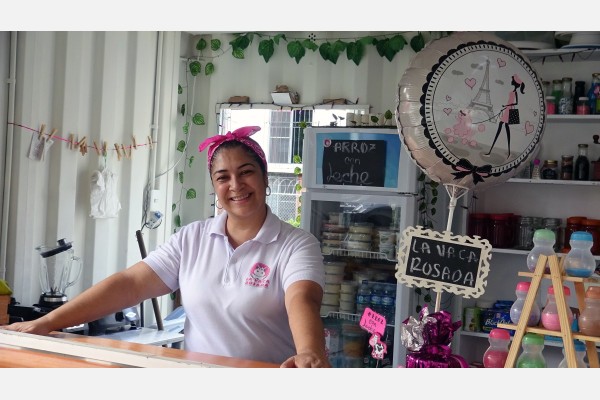Repository of Practices

Sustainable Colombian Opportunities for Peace and Employment (SCOPE) (Canada)
Secondary GCM Objectives
Dates
Type of practice
Summary
Since 2020, the SCOPE project, implemented by Cuso International, has improved inclusive economic growth and supported peacebuilding in Colombia by providing market-driven training and employment opportunities for Venezuelan refugees and migrants, returned Colombians and members of host communities. It identifies and addresses key barriers faced by these populations to access the labour market, gain formal jobs and retain them. To achieve this, SCOPE provides tailor-made training and additional follow-up support, including psychosocial assistance, to project beneficiaries throughout the recruiting and employment phases. The project also works to create more gender equal and socially inclusive work environments by strengthening the capacity of local governments and private sector to design and implement more inclusive employment policies and practices.
Organizations
Main Implementing Organization(s)
Detailed Information
Benefit and Impact
• 1,353 Venezuelan refugees and migrants, returned Colombians and members of host communities linked to a formal employment (59,3% women);
• 1,961 Venezuelan refugees and migrants, returned Colombians and members of host communities received soft skills training (65,4% women);
• More than 1,000 Venezuelan refugees and migrants, returned Colombians and members of host communities have received follow-up support and information on relevant services available to these populations;
• 123 stakeholders from the inclusive employment ecosystem (14 from government, 87 private sector and 22 from civil society) have adopted best practices on how to be a more inclusive actor, and;
• 8 technical guidelines and public policy documents have been developed, in close alignment with key Government of Colombia institutions, introducing some of the best practices and lessons learned developed by the SCOPE project in Colombia.
Key Lessons
Lessons learned from this project can be applied to future projects supporting the socio-economic integration of refugees and migrants into host countries and communities. These include: 1) identifying the barriers faced by refugees and migrants to access and retain jobs and provide ways to address them; 2) prioritizing short and tailored-made trainings with a big emphasis on soft/life skills; and 3) engaging the private sector through a solid win-win business case (rather than from a philanthropic or CSR approach) to guarantee that inclusive employment initiatives are successful and sustainable.
Recommendations(if the practice is to be replicated)
Innovation
Additional Resources
Media
Nuestro impacto
Additional Images
Date submitted:
Disclaimer: The content of this practice reflects the views of the implementers and does not necessarily reflect the views of the United Nations, the United Nations Network on Migration, and its members.
More Related Practices:
- Recruitment Cost Calculator (RCC)
- Research on human rights violations against live-in domestic workers, and related Code of Good Practice
- Migration Lab for the domestic and home care sector
- Domestic Workers League of ACV-CSC Brussels
- Ferias y actividades multitudinarias vinculadas a trabajo con organizaciones de base
Peer Reviewer Feedback:
*References to Kosovo shall be understood to be in the context of United Nations Security Council resolution 1244 (1999).
Newsletter
Subscribe to our newsletter.

